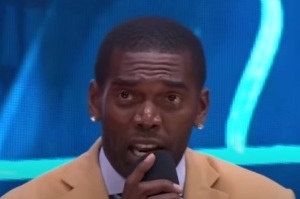Killing for Buddha?
So much happens in the religious world these days that Sightings must be selective in what it accents. For example, this week I'll pass up comment on the hokey "Tomb of the Cozy Jesus Family" on TV and the multi-page treatments of The Secret, a huge best-seller. They both went into my file politely named by a former editor "Bouille Chitte." On the whole, Sightings prefers to look past the big headlines and see evidences of multi-form religious influences.
Here is this week's, from the New York Times: "Sri Lankan Government Finds Ally in Buddhist Monks," by Somini Sengupta. It's not as up-close, intimate, or sexy as the "tomb" or the "secret" stories, or a hundred other flashy items – but given the duration of bloody troubles in the island nation of Sri Lanka and the religious identifications of the fighting parties, it's worth our attention. Full-scale war has broken out there again, where 200,000 civilians have become refugees and 1,300 civilians were killed last year, with the Nordic peace-keepers among them being disdained and defied. Why is this interesting?
Here's why: In a world where we are trained to see that killing in the name of faith, or faith-plus-nation (or tribe), is something that the "wicked and evil Islamofascists" or militant Hindus in India do, it is worth observing that the religious ties in Sri Lanka are a) Christian and b) Buddhist. The Buddhist monks in the Jathika Hela Urumaya or National Heritage Party have gained nine seats in Parliament. "Ethnic Sinhalese Buddhist nationalism" is the pulse and motor of this governmental party. Fighting for autonomy are the separatists, the Tamil minority, also not so nice – and mostly Hindu and Christian. The Buddhist monks see foreign influence on this front. The Venerable Athuraliye Rathana, who leads the National Heritage Party, says, "We have been not just preaching. We have been fighting."
Are the Buddhist clerics gun-firers and polluters of politics? Their leader shrugged off the question: "Was Mahatma Gandhi polluted?" Most monks keep their distance from the war, but, writes Sengupta, "there is nothing in Buddhist doctrine that prohibits or frowns on activism in earthly matters." "How those faiths and ethnic groups live together ... is at the heart of the brutal civil war that has raged since 1983," with monks in the vanguard. Monks have stood by their kings and fought holy wars for centuries.
To the point: Sometimes Native Americans (in North and South America) get portrayed as peace-loving people in tune with Nature and Spirit, while Westerners are seen as killers. A close-up look counters such oversimplified claims of peace, as more archaeological and further recent evidence of violence elsewhere are revealed. And we often get challenged when talking about belligerency and lethality in religion: Make an exception with Buddhism, it is said, which is always peaceful.
Not so. While Buddhists like these monks do not wake up in the morning and look for who to kill "for Buddha" or Buddhist culture, they do connect their faith and philosophy to national and other causes – just as Muslims currently specialize in doing, and as Christians often have.
In this game of war-like versus peace-like religions and faith communities, one sadly has to note that it's a level playing field, and at different times different gods and theologies get invoked to justify killing.
_________________________________________________
Martin E. Marty's biography, current projects, upcoming events, publications, and contact information can be found at www.illuminos.com. Original Source: Sightings – A biweekly, electronic editorial published by the Marty Center at the University of Chicago Divinity School.




























